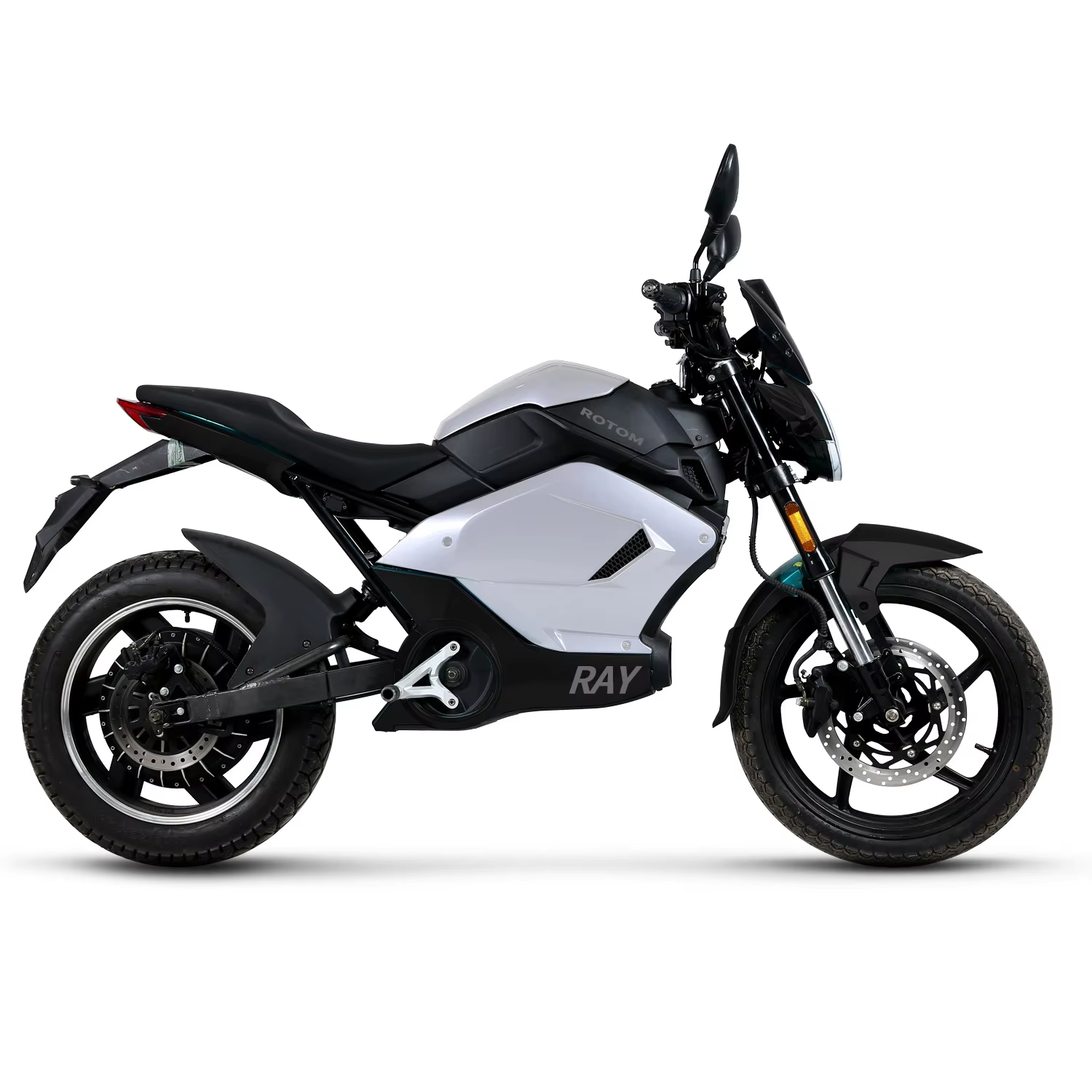Electric motorcycles have surged in popularity in recent years, showcasing not only their eco-friendly benefits but also their performance and convenience. With this boom in the electric motorcycle market, a pertinent question arises: do you need a license for electric motorcycles? The answer can be complex as it varies by region and local laws. In this article, we will explore the legalities surrounding electric motorcycles, the licensing requirements, and the broader implications for riders.
Understanding Electric Motorcycles
Electric motorcycles are two-wheeled vehicles powered by electric motors. Unlike traditional gasoline-powered motorcycles, these vehicles utilize rechargeable batteries, making them more environmentally friendly. Electric motorcycles can come in various forms, from small scooters to high-performance machines that can rival conventional bikes in speed and handling.
Types of Electric Motorcycles
Electric motorcycles vary widely in design and specifications. Some of the common types include:
- Electric Scooters: Typically limited to lower speeds and designed for urban commuting, electric scooters are lightweight and easy to maneuver.
- Street Bikes: These are designed for everyday riding, offering higher speeds and more power. They often resemble traditional motorcycles but run on electricity.
- Sport Bikes: Performance-oriented electric motorcycles that are built for speed and handling, often used for racing.
- Cruisers: Designed for comfort and style, these electric bikes are ideal for long-distance riding.
Understanding the different types of electric motorcycles can help you determine which option suits your needs, as different classifications have different licensing requirements.
Licensing Requirements for Electric Motorcycles
Now that we’ve identified what electric motorcycles are, let’s dive into the licensing requirements. Various regions have different laws regarding licenses, so it’s imperative to understand the legal framework in your specific area.
General Licensing Rules
In many jurisdictions, the need for a license depends on the motorcycle’s power output and speed. Generally, electric motorcycles fall into two categories:
- Mopeds or Scooters: In some areas, electric scooters with a limited motor power (usually around 50cc equivalent or 1,000 watts) may be classified as mopeds, requiring only a basic license or even no license at all.
- Full-Fledged Motorcycles: Electric motorcycles that exceed a specific speed and power threshold typically require a motorcycle license, similar to petrol-powered counterparts.
Country-Specific Regulations
United States
In the U.S., the Federal government has minimal regulations concerning electric motorcycles. Each state has its own rules, creating a patchwork of licensing guidelines.
- California: Electric motorcycles with a maximum speed of 28 mph may not require a motorcycle license, whereas faster bikes will.
- New York: Generally mandates a motorcycle license for most electric motorcycles, regardless of speed.
- Texas: Allows electric scooters to be operated without a motorcycle license, but full electric motorcycles do require a license.
European Union
In the EU, the situation is somewhat more uniform, with the EU categorizing motorcycles into different classes based on engine power.
- AM License: Required for two-wheeled vehicles with an engine size up to 50cc or equivalent electric power.
- A1 License: Required for motorcycles with engine sizes up to 125cc or equivalent in electric power.
- A License: Necessary for motorcycles above 125cc or higher performance electric counterparts.
Asia
Countries in Asia, such as Japan and China, have varying regulations as well. In Japan, for instance, electric motorcycles categorized as “special small vehicles” may not require a license, while conventional electric motorcycles do.
Factors Affecting Licensing Requirements
Several factors can influence whether you need a license for electric motorcycles in your area:
- Motor Power: The wattage of the electric motor impacts classification. Lower wattage means relaxed requirements in many locales.
- Maximum Speed: The speed capability is often a determining factor. Vehicles that can easily exceed speed limits may require a full motorcycle license.
- Local Laws: Always check local ordinances as city or county regulations may impose additional requirements.
- Driver Age: Minimum age for riding may vary and is often more stringent in the case of higher-powered electric bikes.
The Process of Obtaining a License
If you find that you do need a license for your electric motorcycle, it’s essential to understand what the process entails. While it may vary depending on your state or country, some common steps include:
Enroll in a Motorcycle Safety Course
Many places offer safety courses designed to prepare you for the responsibilities of riding. Completing a safety course may sometimes reduce the requirements for obtaining a motorcycle license.
Pass a Knowledge Test
Next, you’ll likely need to pass a written test that covers the rules of the road, safe riding practices, and specific regulations related to motorcycles.
Skills Test
Most jurisdictions will require you to pass a skills test where you’ll demonstrate your ability to operate the motorcycle safely.
Obtain the License
Finally, after completing all the necessary requirements, you can apply for your motorcycle license, often at your local Department of Motor Vehicles (DMV) or equivalent agency.
Benefits of Riding Electric Motorcycles
The benefits of riding electric motorcycles extend beyond merely fulfilling legal requirements. They include:
Environmental Impact
Electric motorcycles produce zero emissions, making them an excellent choice for those concerned about environmental sustainability. This cleaner option significantly reduces your carbon footprint.
Cost Efficiency
Electric models often have lower operational costs compared to gas-powered motorcycles. The price of electricity versus gasoline and reduced maintenance will lead to long-term savings.
Quiet Operation
The quiet operation of electric motorcycles means they are less intrusive, contributing to less noise pollution, especially in urban settings.
Incentives for Switching
In various regions, governments may provide incentives for adopting electric vehicles, including rebates on purchase, tax credits, and even subsidized insurance rates.
Common Misconceptions About Electric Motorcycles and Licensing
Despite electric motorcycles being widely accepted, some misconceptions still persist.
“I Don’t Need a License Because It’s Electric”
While some people believe that the electric nature of the bike exempts them from needing a license, that is not universally true. As mentioned earlier, it depends on speed and power output.
“Electric Motorcycles Are Just Overgrown Scooters”
Not all electric motorcycles are created equal. High-performance electric bikes can be just as powerful, if not more powerful, than their gas-fueled counterparts, often necessitating a full motorcycle license.
“I’ll Just Ride It on the Sidewalk”
In many places, it is illegal to ride motorcycles, electric or otherwise, on sidewalks. You need to obey traffic laws, and riding on sidewalks may result in fines or penalties.
 The Future of Electric Motorcycles and Licensing
The Future of Electric Motorcycles and Licensing
As the popularity of electric motorcycles grows, it’s likely that regulations may adapt as well. More standardized regulations may emerge to make licensing requirements clearer for potential riders.
Potential Changes in Legislation
Legislation may gradually shift to accommodate electric vehicles better, particularly at local and state levels. This could lead to more lenient licensing requirements for low-speed or low-power electric models.
Industry Influence
As manufacturers ramp up production, they may push for changes in legislation to make electric motorcycles more accessible, potentially leading to changes in licensing laws.
Public Awareness and Education
Increased public awareness and educational initiatives may help clear up misconceptions surrounding electric motorcycles, making potential riders more informed about existing regulations and safety practices.
Conclusion
So, do you need a license for electric motorcycles? It largely depends on factors like your location, the power and speed of the bike, and local laws. As electric motorcycles become more integrated into the transportation landscape, riders should stay informed about licensing requirements and safety measures. Understanding the nuances of regulation not only ensures a lawful riding experience but also promotes safer practices for everyone on the road. Whether you’re a seasoned motorcycle rider or a newcomer drawn by the appeal of electric mobility, knowledge is essential for making informed choices. Riding responsibly ensures a positive and rewarding experience in this exciting new world of electric transportation.


